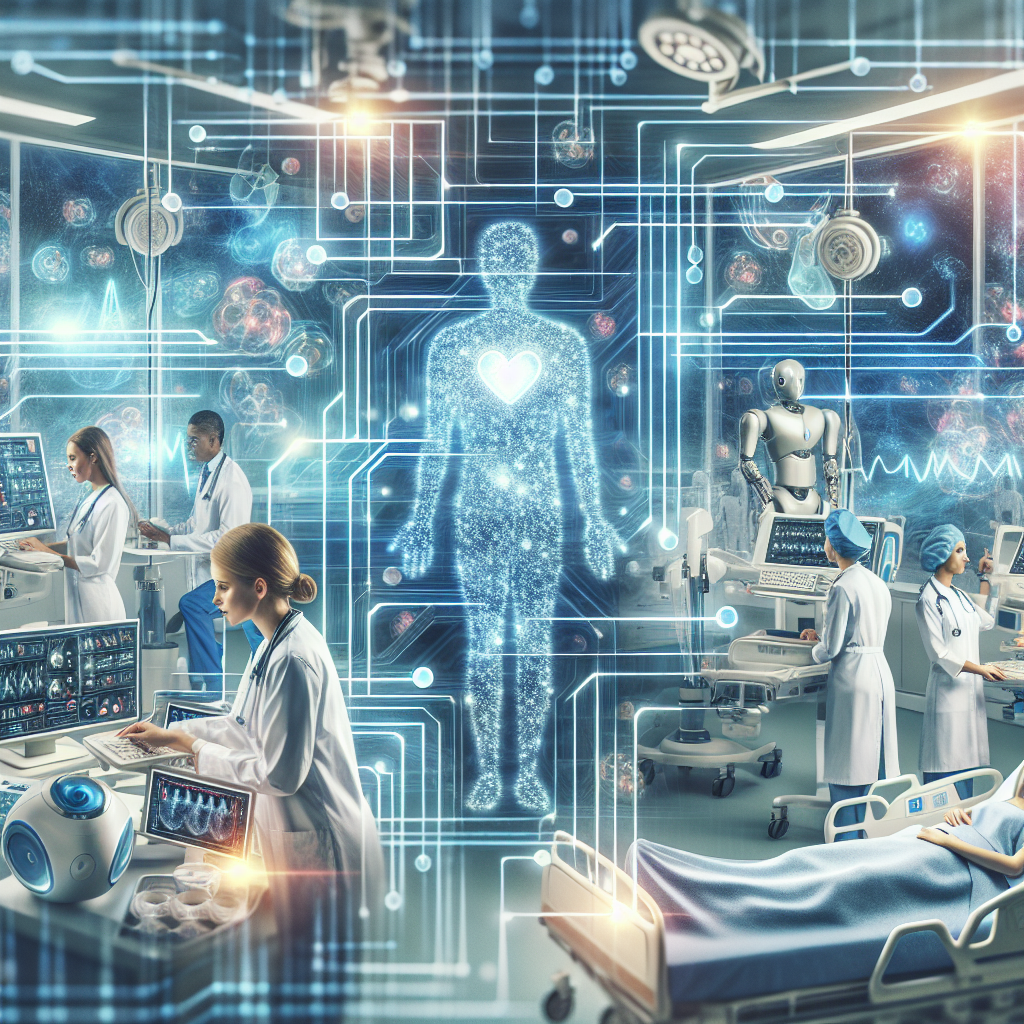Artificial Intelligence (AI) has made significant advancements in various industries, including healthcare. The use of AI in healthcare has the potential to improve patient outcomes by providing more accurate diagnoses, personalized treatment plans, and better overall care. From early detection of diseases to predicting patient outcomes, AI has the potential to revolutionize the way healthcare is delivered.
One of the key areas where AI is making an impact in healthcare is in medical imaging. AI algorithms can analyze medical images such as X-rays, MRIs, and CT scans with incredible accuracy, helping radiologists detect and diagnose conditions like cancer, fractures, and other abnormalities more quickly and accurately. This can lead to earlier detection of diseases, better treatment planning, and improved patient outcomes.
AI is also being used to personalize treatment plans for patients. By analyzing large amounts of patient data, AI can identify patterns and trends that can help healthcare providers tailor treatment plans to individual patients. This can lead to more effective treatments, reduced side effects, and better patient outcomes.
In addition, AI is being used to monitor patients in real-time and predict adverse events before they happen. For example, AI algorithms can analyze data from wearable devices to predict when a patient is at risk of a heart attack or stroke. This early warning system can help healthcare providers intervene early and prevent serious complications.
AI is also being used to improve the efficiency of healthcare operations. For example, AI-powered chatbots can help patients schedule appointments, answer common questions, and provide information about their conditions. This can free up healthcare providers to focus on more complex tasks and improve the overall patient experience.
Despite the potential benefits of AI in healthcare, there are some challenges that need to be addressed. One of the main concerns is the privacy and security of patient data. Healthcare data is highly sensitive and must be protected from unauthorized access or misuse. Healthcare providers must ensure that AI systems comply with strict data protection regulations and take steps to safeguard patient information.
Another challenge is the potential for bias in AI algorithms. AI systems are only as good as the data they are trained on, and if that data is biased, the algorithms may produce biased results. Healthcare providers must be aware of this risk and take steps to ensure that AI systems are fair and unbiased in their decision-making.
Despite these challenges, the potential benefits of AI in healthcare are vast. By harnessing the power of AI, healthcare providers can improve patient outcomes, reduce costs, and provide better care to patients. As AI continues to advance, it will play an increasingly important role in the future of healthcare.
FAQs
Q: How is AI being used in medical imaging?
A: AI algorithms are being used to analyze medical images such as X-rays, MRIs, and CT scans with incredible accuracy, helping radiologists detect and diagnose conditions more quickly and accurately.
Q: Can AI personalize treatment plans for patients?
A: Yes, AI can analyze large amounts of patient data to identify patterns and trends that can help healthcare providers tailor treatment plans to individual patients, leading to more effective treatments and better patient outcomes.
Q: What are some of the challenges of using AI in healthcare?
A: Some of the challenges of using AI in healthcare include privacy and security concerns, the potential for bias in AI algorithms, and the need for healthcare providers to ensure that AI systems comply with data protection regulations.
Q: How can healthcare providers address the challenges of using AI in healthcare?
A: Healthcare providers can address the challenges of using AI in healthcare by ensuring that AI systems comply with data protection regulations, taking steps to safeguard patient data, and being aware of the potential for bias in AI algorithms.

